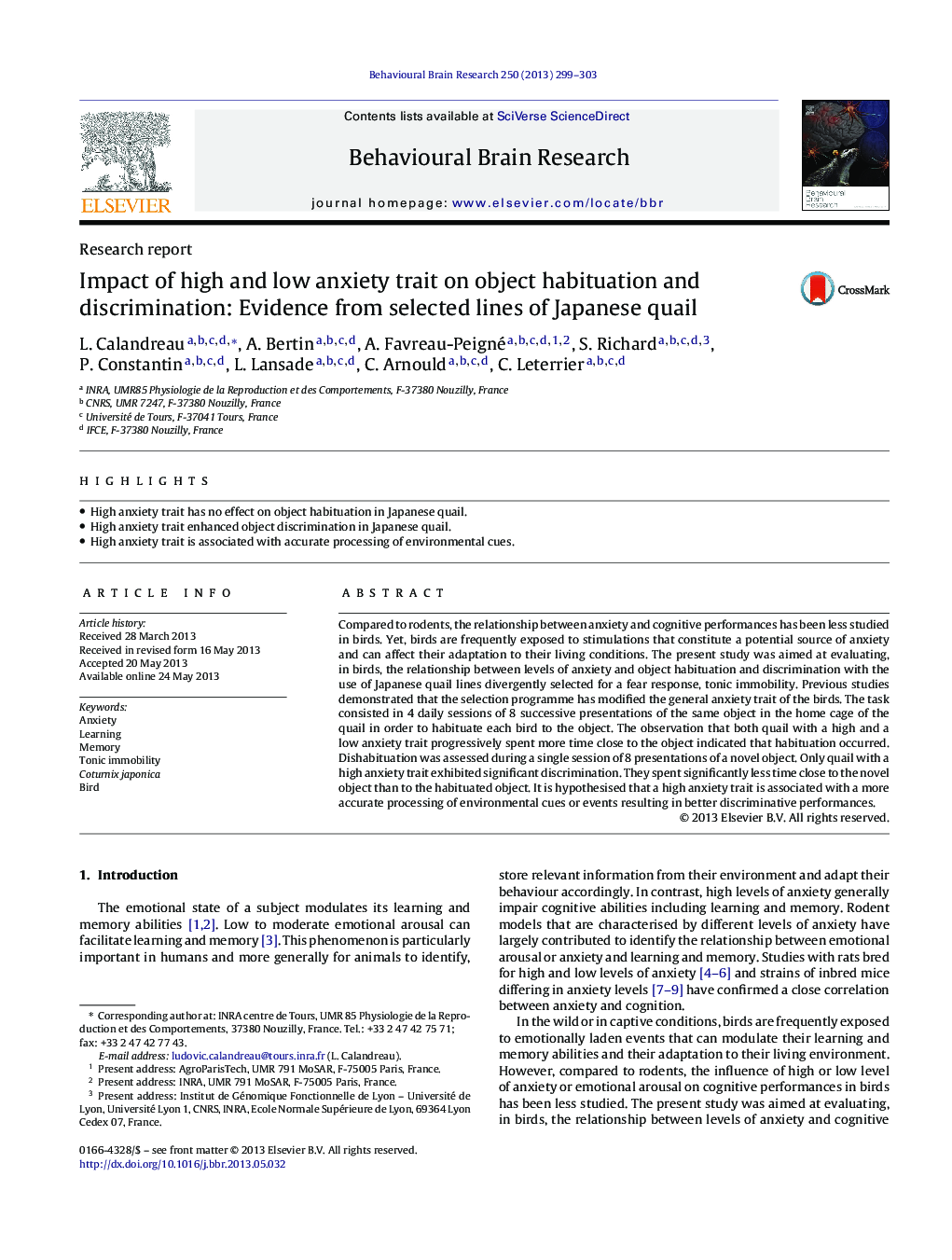| Article ID | Journal | Published Year | Pages | File Type |
|---|---|---|---|---|
| 6259019 | Behavioural Brain Research | 2013 | 5 Pages |
â¢High anxiety trait has no effect on object habituation in Japanese quail.â¢High anxiety trait enhanced object discrimination in Japanese quail.â¢High anxiety trait is associated with accurate processing of environmental cues.
Compared to rodents, the relationship between anxiety and cognitive performances has been less studied in birds. Yet, birds are frequently exposed to stimulations that constitute a potential source of anxiety and can affect their adaptation to their living conditions. The present study was aimed at evaluating, in birds, the relationship between levels of anxiety and object habituation and discrimination with the use of Japanese quail lines divergently selected for a fear response, tonic immobility. Previous studies demonstrated that the selection programme has modified the general anxiety trait of the birds. The task consisted in 4 daily sessions of 8 successive presentations of the same object in the home cage of the quail in order to habituate each bird to the object. The observation that both quail with a high and a low anxiety trait progressively spent more time close to the object indicated that habituation occurred. Dishabituation was assessed during a single session of 8 presentations of a novel object. Only quail with a high anxiety trait exhibited significant discrimination. They spent significantly less time close to the novel object than to the habituated object. It is hypothesised that a high anxiety trait is associated with a more accurate processing of environmental cues or events resulting in better discriminative performances.
